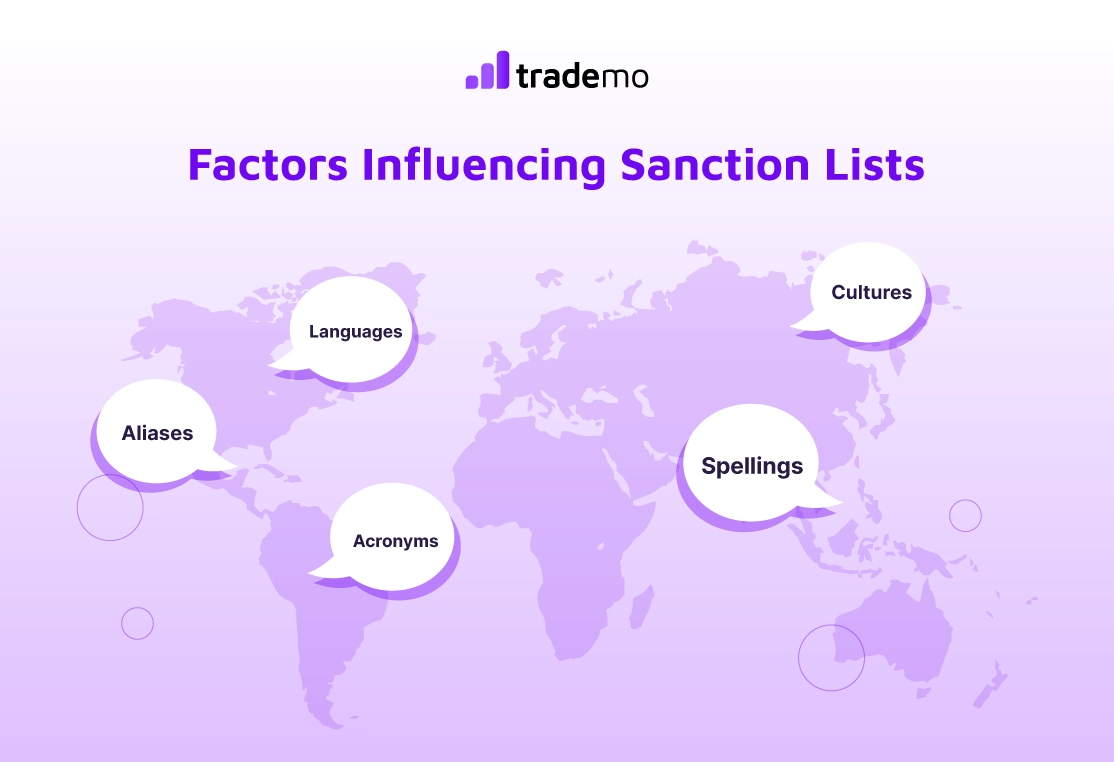Videos & Webinars
Watch videos featuring supply chain experts
In a geopolitical climate where new sanctions are imposed frequently, it is extremely important for a business to have a proper sanction screening strategy.
Such figures are a clear indicator that businesses need to be better prepared for potential sanctions violations. Sanctions violations can be extremely damaging to a business’s cash flow, reputation, and functioning.
Sanction fines often stretch into millions of dollars for even the most minor of offenses. Therefore, sanctions compliance and screening is imperative to protect your business’ best interests.
Sanctions are protective and preventive measures undertaken by governments to protect their national interest, prohibit illicit activities, and restrict trade with other hostile countries, individuals, or parties.
A sanctions screening process is a control measure designed by businesses to ensure that they do not violate sanctions set by the countries they operate in. Such a strategy involves constant evaluation of customers, business partners, and individuals within the organization to ensure no party involved in a business’s operations is a sanctioned entity.
In theory, sanction checks & screening sounds easy. However, it is far more challenging than one might imagine. In practice, a sanction screening strategy must take into account various factors such as international languages, cultures, spellings, acronyms, aliases, and more.

To begin sanctions screening, a business needs to work through sanctions data & relevant sanctions lists. Sanctions lists are usually collected & compiled by governments and regulatory bodies around the world.
For smaller businesses, however, keeping track of these sanctions lists can be a challenge. Thankfully, AI-based sanctions check & screening tools such as Trademo Sanctions Screener compile data from global sanctions lists in a standardized format that can help businesses verify entities & parties that they are in business with. You can start for free!
However, simply having access to sanctions data isn’t enough. The very nature of sanctions often makes it difficult. For example, businesses can be at risk of sanctions violations if their business partners/customers who are not on a sanction list are working with other sanctioned entities.
Here are some points which signify the importance of sanctions screening given below:
As mentioned above, sanctions screening is a challenging and demanding process for businesses. Even with the right teams and measures in place, businesses often fall prey to such violations. You may also need some sort of guide to sanctions screening which will ultimately help. Some of the biggest challenges faced by businesses are as follows:
Lack of Accurate Data: Sanctions screening without proper access to sanctions data is a dangerous and careless endeavor. Without accurate data, sanctions screening can be futile and may land your business in trouble. Businesses that have partners/customers from around the world need access to robust and up-to-date sanctions data from multiple sanction lists. In recent years, there have been several sanction screening solutions that can help you keep track of global sanction lists.
Under and Over Screening: Compliance teams that take care of sanctions screening must ensure that they do not under or over-screen their partners. Under-screening leads to sanctions violations while over-screening can create false positives where businesses incorrectly assess their ability to do business with a particular entity.
Diverging Interests: Businesses that need sanction checks are usually involved with entities across the world in different countries and the business itself may have multiple centers of operation. However, each country has unique sanction lists and sanction rules. For example, US OFAC Screening Sanctions lists restrict dealings with Iranian entities, however, other countries may or may not do the same. In such scenarios, managing sanctions compliance can be quite challenging and businesses need to take extra care with the entities they involve themselves with.
Lack of Resources: While larger businesses usually have a compliance team ready to pass entities by, smaller businesses may find it difficult to have dedicated teams to meet compliance and sanctions needs. In addition, keeping track of hundreds of sanction lists is near-impossible for small businesses. However, tools like Trademo Sanctions Screener can alleviate some of these challenges as it provides businesses access to 500+ sanction lists.
Here are a few best practices that can help improve and simplify your sanction screening processes:
Efficient sanctions screening needs an efficient strategy for sanctions compliance & management. Here’s a short guide on how you can create one for your business:
Overall, sanctions screening is among the most important tasks for a business. Most businesses usually include sanctions within their overall risk management strategy. However, with recent geopolitical events showing otherwise, sanctions compliance is becoming more and more important.
And with AI tools like the one from Trademo, sanctions screening can be made easier by helping businesses simplify and streamline their screening strategies. You can learn more about Trademo Sanctions Screener and what it can do for your business by taking a free trial!